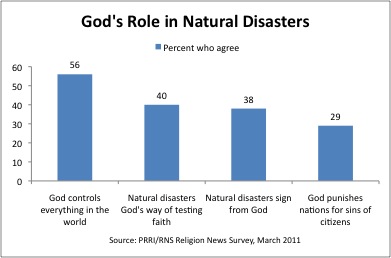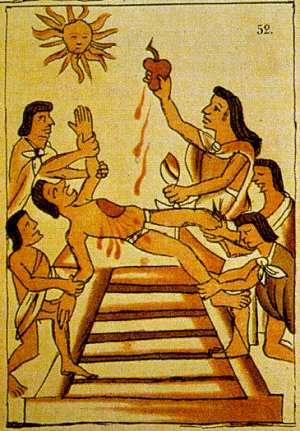In light of my series on the violence of God in the Bible, in which I said that the Bible is the most violent religious text in the world, someone sent this picture to me. It made me think… Hmmm, why do I want my children to read the Bible again?

Go here to see some more humorous Christian memes.


 Last week I wrote a post about the
Last week I wrote a post about the 
 We are looking at 4 reasons the Bible is unique. Here is a brief summary of where we have been so far:
We are looking at 4 reasons the Bible is unique. Here is a brief summary of where we have been so far: When we are violent, we make God the scapegoat for our violence. We learned this practice from the father and mother of humanity, Adam and Eve. After they ate the forbidden fruit in the Garden of Eden, Adam blamed Eve, and Eve blamed the serpent, but both inferred blame upon God. In blaming Eve, Adam said “the woman whom You gave to be with me, she gave me of the tree, and I ate” (Gen 3:12). Adam implies that if God had not given the woman to him, Adam never would have sinned. It was God’s fault. Eve’s attempt to blame God is not so obvious, but in blaming the serpent, it seems that she implies that if the serpent had not been in God’s Garden (for didn’t God create all the animals?), or if God had given to Eve the same instructions He had given to Adam (for didn’t God only give His instructions about the forbidden fruit to Adam?) Eve would not have been deceived.
When we are violent, we make God the scapegoat for our violence. We learned this practice from the father and mother of humanity, Adam and Eve. After they ate the forbidden fruit in the Garden of Eden, Adam blamed Eve, and Eve blamed the serpent, but both inferred blame upon God. In blaming Eve, Adam said “the woman whom You gave to be with me, she gave me of the tree, and I ate” (Gen 3:12). Adam implies that if God had not given the woman to him, Adam never would have sinned. It was God’s fault. Eve’s attempt to blame God is not so obvious, but in blaming the serpent, it seems that she implies that if the serpent had not been in God’s Garden (for didn’t God create all the animals?), or if God had given to Eve the same instructions He had given to Adam (for didn’t God only give His instructions about the forbidden fruit to Adam?) Eve would not have been deceived.


 And yet, there is a deep truth here we must not miss. I ended the
And yet, there is a deep truth here we must not miss. I ended the  Though we may not always understand why and how sin and suffering enters into God’s world, one thing we can know through the crucifixion of Jesus is that God does not send sin and suffering, but rather, is a victim of it along with us.
Though we may not always understand why and how sin and suffering enters into God’s world, one thing we can know through the crucifixion of Jesus is that God does not send sin and suffering, but rather, is a victim of it along with us. 
 In his books,
In his books,  When God does finally reveal Himself in the person and work of Jesus Christ, the pinnacle and apex of this revelation is seen on the cross where Jesus takes the sin of the world upon Himself and dies as a criminal for all to see.
When God does finally reveal Himself in the person and work of Jesus Christ, the pinnacle and apex of this revelation is seen on the cross where Jesus takes the sin of the world upon Himself and dies as a criminal for all to see. 